Macron's re-election sparks protests in divided France; police kill two in Paris
President Emmanuel Macron’s re-election has triggered riots and protests across France with his far-right rival Marine Le Pen’s strong showing in the polls likely to make his second term more turbulent.
Police fired on a car in central Paris, killing two people and leaving one other person injured, reported France Info radio and Le Figaro newspaper.
The incident, which occurred overnight, took place near the Pont Neuf in Paris. Police had initially spotted the car driving the wrong way and had sought to make checks on it, added French media reports.
Riot police sprayed teargas on mostly young protesters opposing Macron’s election win Sunday night in central Paris, social media images showed, after he defeated Le Pen earlier in the day and became the first French president in 20 years to win a second term.
However, despite winning by a comfortable margin, the abstention rate was marked to be the highest since 1969, with a sizeable number of voters refusing to vote for either of the two lead contenders.
Between the first round of voting and Sunday's runoff, students protested outside the Sorbonne in Paris and other universities across France, venting their frustration with the choice of presidential candidates.
After voting booths closed across the country, projections on Sunday evening had the center-right incumbent set to win 58.2 percent of the vote, with Le Pen to lose out on 41.8 percent, the far-right’s highest ever presidential vote share.
The gap between the two rivals has nearly halved since 2017 when Macron was elected with 66.1 percent of the vote and Le Pen got 33.9 percent.
This year's campaign was dominated by the war in Ukraine, but most of the candidates also tapped into France’s nervous relationship with immigration and secularism.
Embarking on his second term, fresh from two years of COVID-19 policies amid high inflation and the war in Ukraine, Macron is expected to have a tough ride, experts opine.
Calls have already gone up to kickstart what is known in France as a “social third round” of the presidential election — one that takes place in the streets, in the form of protests.
Left-wing voters who held their noses and voted for Macron to keep the far-right out of power are particularly motivated to apply pressure on Macron’s administration.
Macron acknowledged those who had voted for him in an effort to avert Le Pen’s rise to power.
"An answer must be found to the anger and disagreements that led many of our compatriots to vote for the extreme right,” he said. “It will be my responsibility and that of those around me."
A divided country
Macron’s most immediate challenge in his second term, however, will be a deeply divided country where political anger could easily boil over into street protests and violence.
Acknowledging those divisions in his victory speech, he said the country is “full of doubts and divisions”.
Addressing his nation from an octagon-shaped stage set in front of the Eiffel Tower, Macron also attempted to unite the country by vowing that he was the leader of all France, not just one party.
“I'm not the candidate of one camp anymore, but the president of all of us,” he asserted.
Far-right's highest score ever
Macron’s victory, however, is clouded by the fact that his rival — an anti-immigration, nationalist candidate who advocates banning the Islamic headscarf in public and intends to turn the European Union into an “alliance of European nations” — won more votes than any far-right candidate in the history of France.
More than 12 million people voted for Le Pen, about five million more than her last presidential bid in 2017 — which suggests that her strategy of trying to bring her party into the political mainstream has been largely successful.
The result further poses warnings for the European Union and the US-led NATO military alliance.
In one of the EU’s founding countries, millions voted for the candidate whose campaign platform advocates dismantling the EU from within by suspending its free-travel rules and downgrading the supremacy of EU law.
“This result is [the sign] of a great mistrust against our leaders and against European leaders, a message they cannot ignore,” Le Pen told supporters in her concession speech. “Voters have shown they want a strong opposition power to Macron.”
She said she feels “a sense of hope” despite her defeat to the incumbent president.
“This result constitutes - for French rulers and European rulers - the evidence of a great defiance towards them from the French people,” Le Penn said.
Her strong showing will be seen as a warning in Brussels, which remains rattled by Britain’s vote to leave the EU and is locked in judicial battles with Poland and Hungary over rule-of-law disputes.
Unrest around the corner
During her speech, the National Rally Party chief further struck a combative tone and hinted that she would be leading her troops into battle when voters elect a new French parliament in June.
“It’s a striking victory,” Le Pen told cheering supporters in Boulogne, a suburb of Paris that has historically been her party’s home base.
“We’re more determined than ever,” she added, “and our will to defend French people is even stronger.”
Hinting at potential alliances that could strengthen Le Pen’s party even further, far-right presidential candidate Eric Zemmour, who was knocked out in the election’s first round, called for the formation of a “patriotic bloc” uniting his and Le Pen’s supporters.
“We must forget our quarrels and unite our forces. It is possible, it is essential, it is our duty. Let’s build the first coalition of the right and the patriots as soon as possible,” Zemmour said after the election results were announced.
'Third round of polls'
All eyes now turn to the parliamentary vote, which is to be held in mid-July and will determine who runs the French parliament.
Macron needs a majority in the National Assembly to be able to push through his reforms and campaigning is not expected to be easy.
His La Republic en Marche party won a majority of 308 of the 577 seats in 2017, but after a decrease in his vote share in Sunday’s election, opposition parties will be coming hard at him.
In a speech on Sunday night, Jean-Luc Melenchon, the leader of France’s hard-left La France Insoumise (France Unbowed) party, said: “Monsieur Macron is the worst elected president of the fifth republic. His presidential monarchy survives by default.”
Melenchon hopes his party will get a big enough score for Macron to name him prime minister, which would be a shock.
Traditionally, French voters tend to vote the same way in presidential and parliamentary elections, so that the elected president and his government aren’t at loggerheads as they begin their term.
But for France’s left, the parliamentary election offers an opportunity for revenge.
Mélenchon came a close third in the first round of the presidential election and his camp hopes to capitalize on his success and thwart Macron’s reform plans.
Iran’s engineering feat beneath Persian Gulf for gas supply
Israeli military confirms soldier’s death in apparent suicide case
UN chief slams Israel for blocking utilities to UNRWA in Gaza
Israel launches airstrikes, artillery fire across Gaza on first day of 2026
VIDEO | Press TV's news headlines
Millions of Afghans face food insecurity
Israel killed 7,488 Palestinian students, educational staff during 2025
VIDEO | Festive celebrations held across China to welcome new year


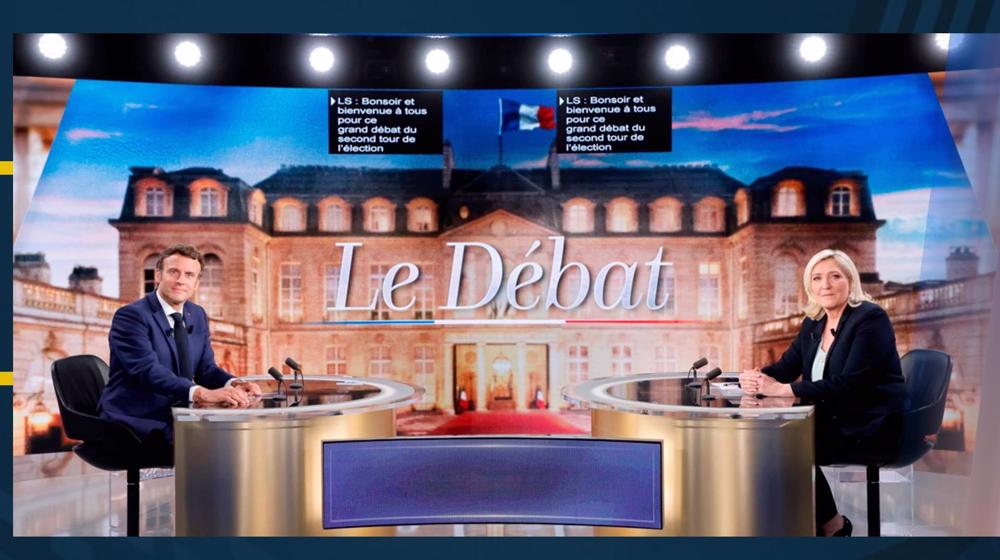
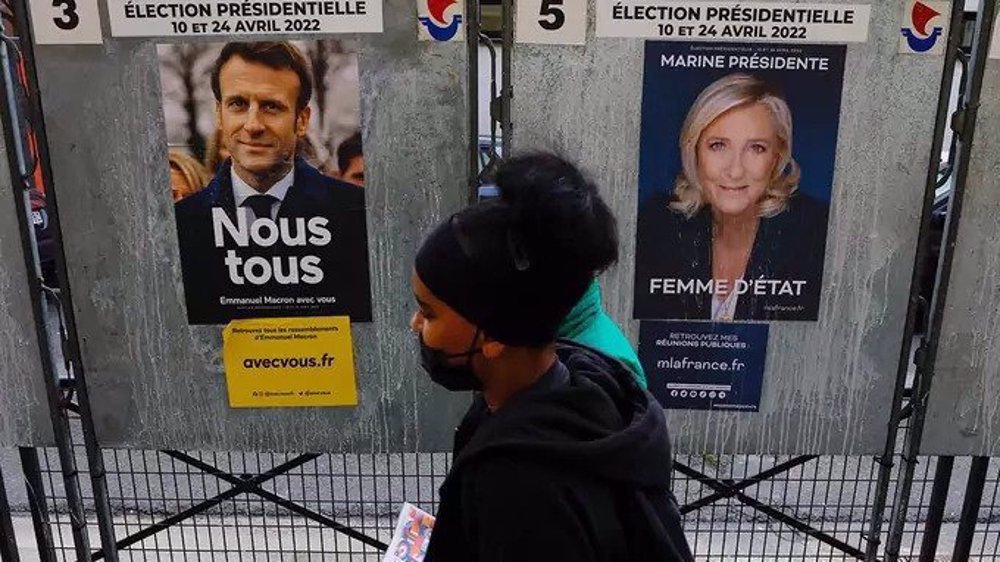
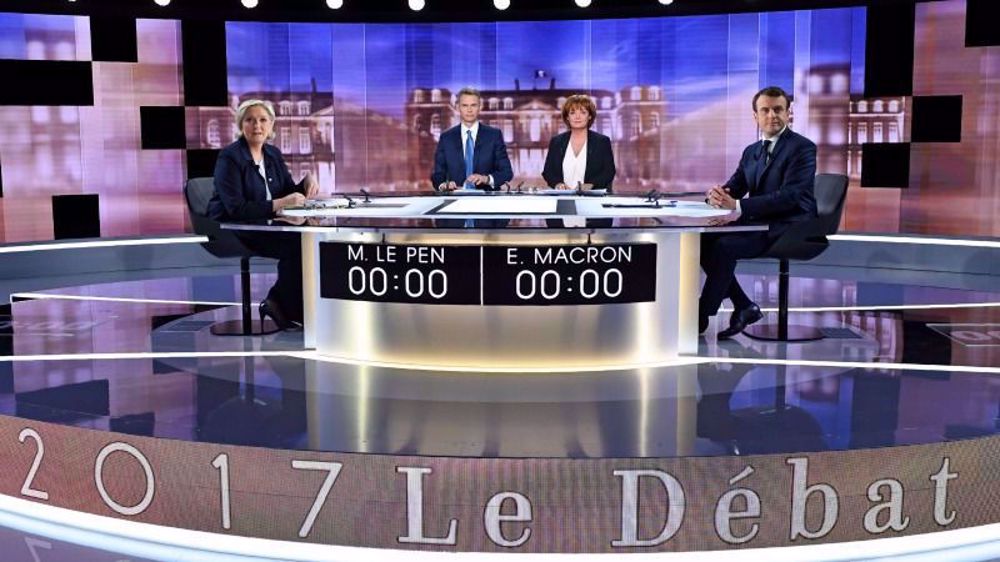
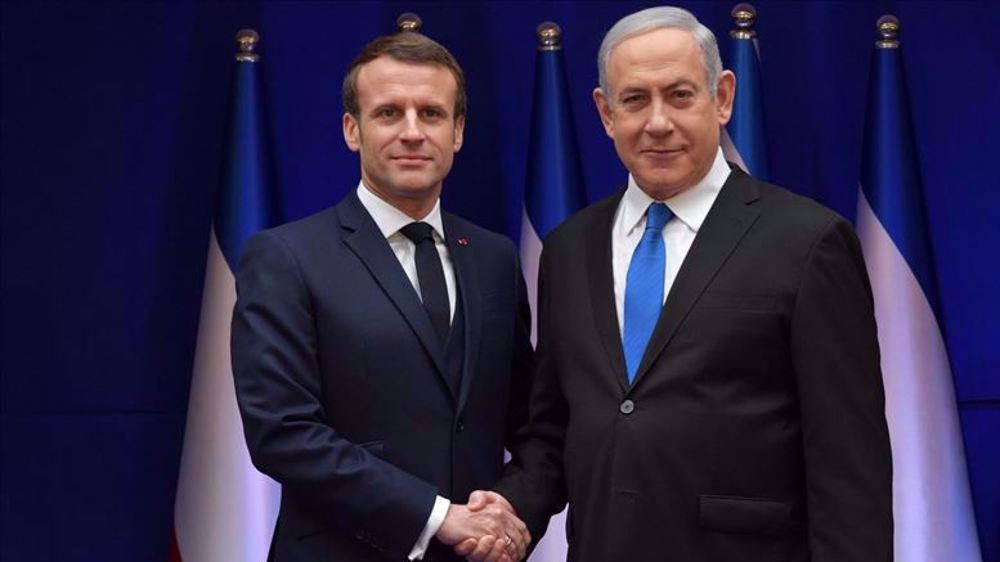
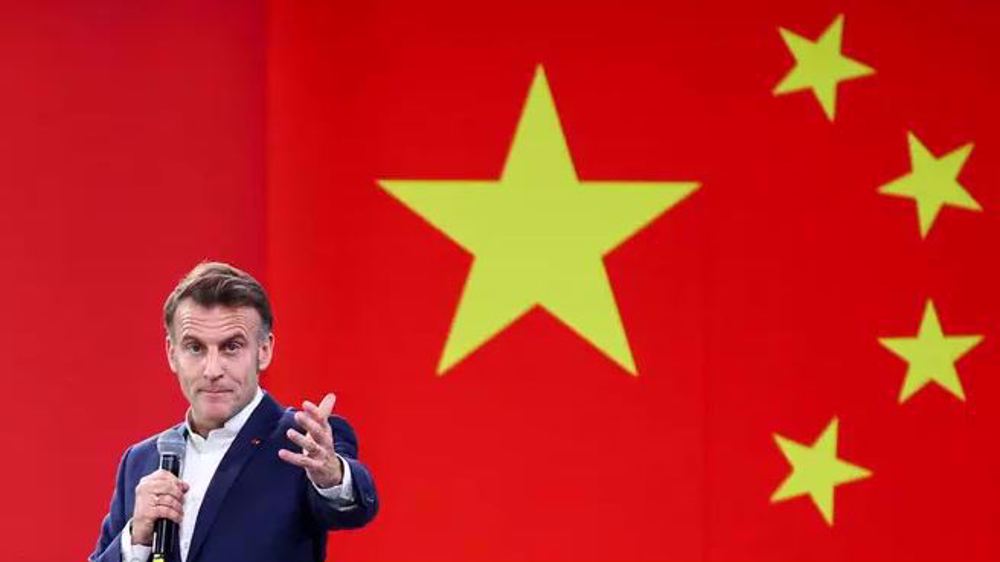
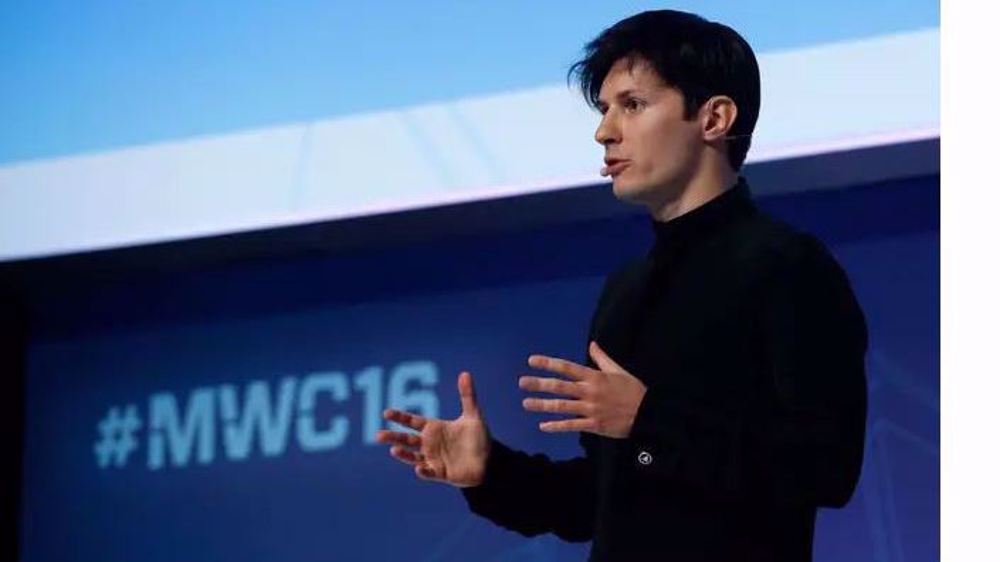



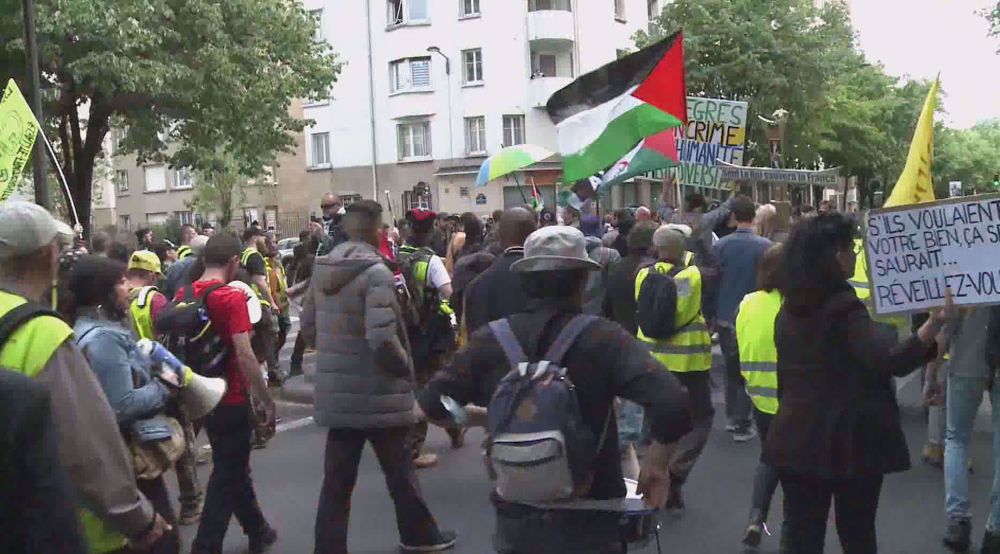
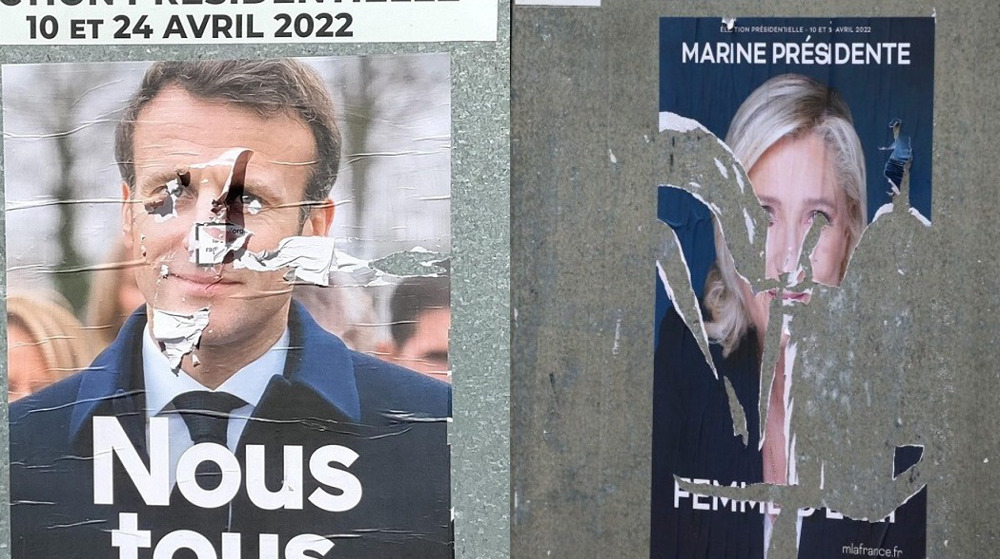
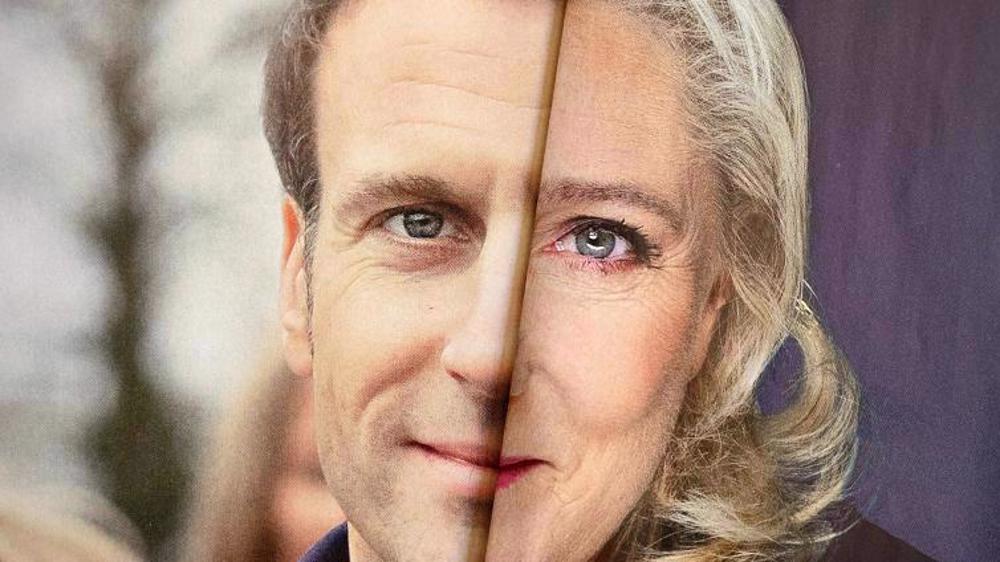
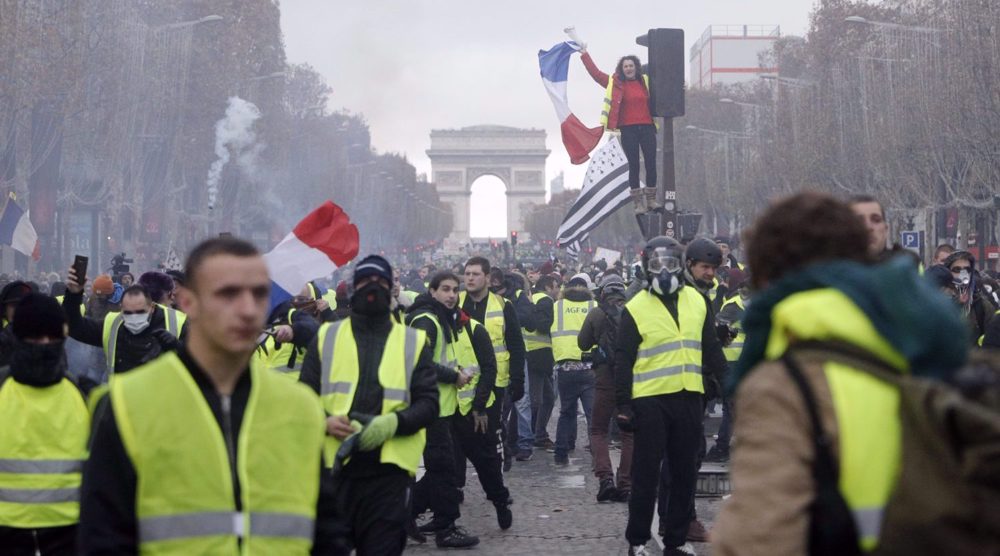
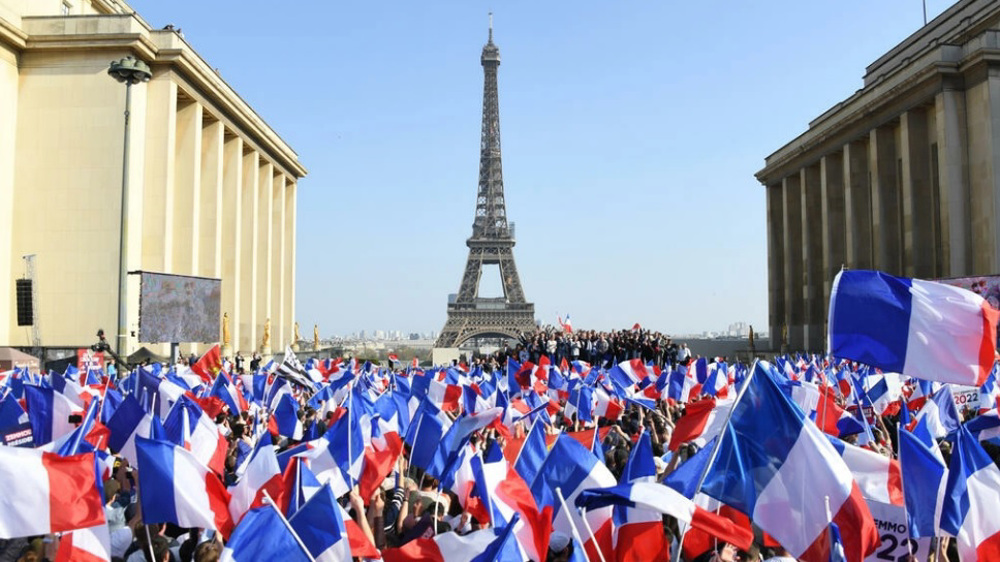

 This makes it easy to access the Press TV website
This makes it easy to access the Press TV website